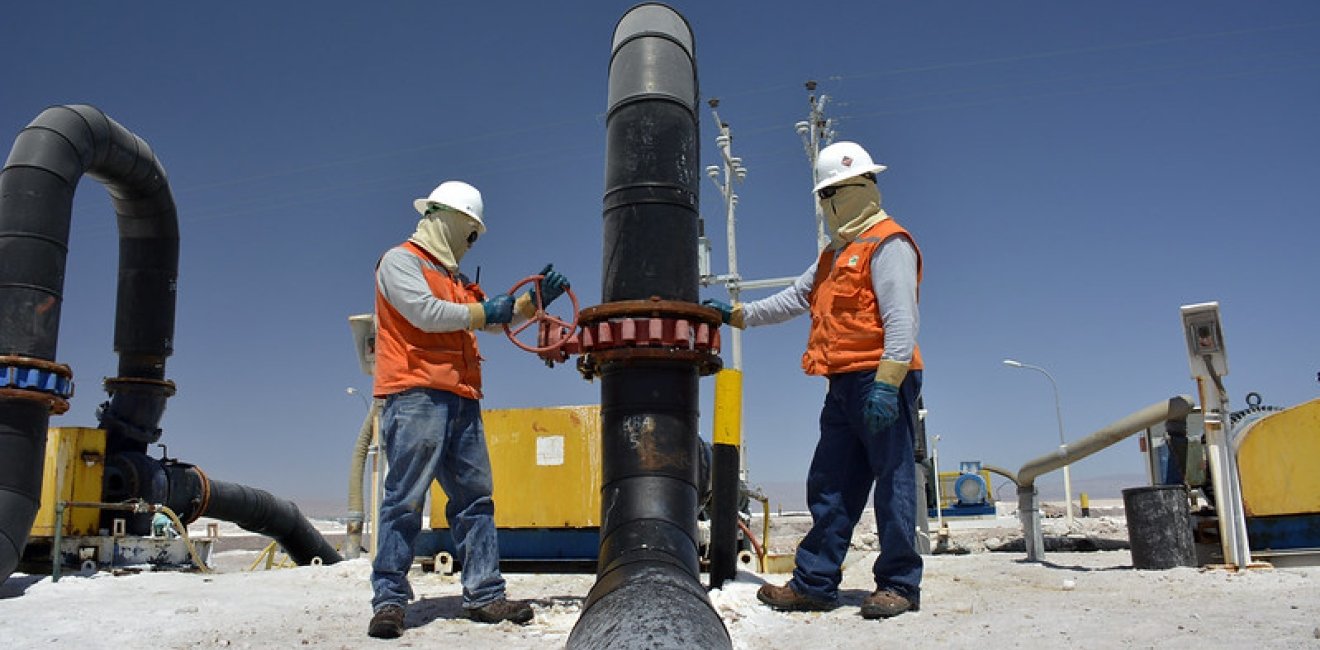
A blog of the Latin America Program
Chile’s lithium industry is at a crossroads. At stake is Chile’s future as one of the world’s leading lithium producers, and whether the Andean nation will continue to play a central role in the planet’s transition from fossil fuels to electrification. There is much debate in Chile on the role of the state in the lithium industry and the best approaches to protect the environment and local communities.
Lithium production in Chile’s Atacama desert made Chile a lithium powerhouse. The country produced 26 percent of the world’s lithium in 2021, and the Atacama holds the world’s largest reserves, 9.3 million tonnes. Chile is the world’s number one producer of high-quality lithium from brines, and second biggest producer overall after Australia, which produces lithium from rock. Chile is also the world’s top producer of copper, accounting for 28 percent of total production, and holds rare earth deposits in its southern regions.
In recent years, Chile’s lithium sector has been losing market share. Australia surpassed Chile in 2017, and Argentina has been catching up. Investment has been flooding into lithium projects given high prices and projections that global demand will be 40 times higher by 2040. Still, Chile remains competitive, with high quality, low-cost lithium extracted by two major producers, U.S.-based Albemarle and Chilean SQM, responsible for $2.3 billion of investment last year alone.
Chile remains competitive, with high-quality, low-cost lithium extracted by two major producers, U.S.-based Albemarle and Chilean SQM.”
The election of President Gabriel Boric in 2021, Chile’s unresolved constitutional reform process, and policy debates about the future of the mining sector have led to uncertainties about the legal and regulatory environment for Chile’s lithium industry. Soon, however, the government is expected to publish a national lithium strategy. The document should clarify the role of the government and private enterprises in the industry, and how Chile will balance economic, environmental and social objectives.
For now, it seems certain Boric will establish a state-owned lithium company, though its prominence in the sector remains to be seen. The strategy will also address the impact of lithium production on local communities and the environment. Government officials have suggested that going forward, Chile will only approve projects that use a new technology, Direct Lithium Extraction (DLE), designed to extract lithium without relying upon the traditional evaporation process. The hope is that DLE technology would reduce water use in the Atacama, one of the most arid areas of the world.
The global scramble for lithium, including by the United States, China and Europe, will promote continued experimentation in this strategic industry, including in Chile.”
DLE technology is untested at a large scale. But the global scramble for lithium, including by the United States, China and Europe, will promote continued experimentation in this strategic industry, including in Chile. In the United States, for example, last year’s Inflation Reduction Act promises billions of dollars in incentives to promote the production and adoption of electric vehicles and strengthen the supply chain for renewable energy technologies. That could be a boon for Chile, as the legislation encourages U.S. manufacturers to purchase critical minerals, including lithium, from U.S. mines or from countries like Chile that have free trade agreements with the United States. For the same reason, the European Union recently renegotiated its trade agreement with Chile to facilitate European access to Chile’s lithium. For electric vehicle makers in both the United States and Europe, Chile’s high environmental standards are part of the country’s appeal.
For that reason, Chile’s lithium strategy is highly anticipated. As much of the world transitions to renewable energy and electric vehicles, all eyes are on Chile as it sets out to calibrate the role of the government and private companies, and the best way to safeguard the environment and local communities.
Author

Independent Energy Expert, Former Jennings Randolph Senior Fellow at the U.S. Institute of Peace

Latin America Program
The Wilson Center’s prestigious Latin America Program provides non-partisan expertise to a broad community of decision makers in the United States and Latin America on critical policy issues facing the Hemisphere. The Program provides insightful and actionable research for policymakers, private sector leaders, journalists, and public intellectuals in the United States and Latin America. To bridge the gap between scholarship and policy action, it fosters new inquiry, sponsors high-level public and private meetings among multiple stakeholders, and explores policy options to improve outcomes for citizens throughout the Americas. Drawing on the Wilson Center’s strength as the nation’s key non-partisan policy forum, the Program serves as a trusted source of analysis and a vital point of contact between the worlds of scholarship and action. Read more

Explore More in Weekly Asado
Browse Weekly Asado
Dengue Haunts South America’s Summers

Lessons from Costa Rica’s Economic Transformation

Women and Latin America’s Digital Revolution

